Home / Publications
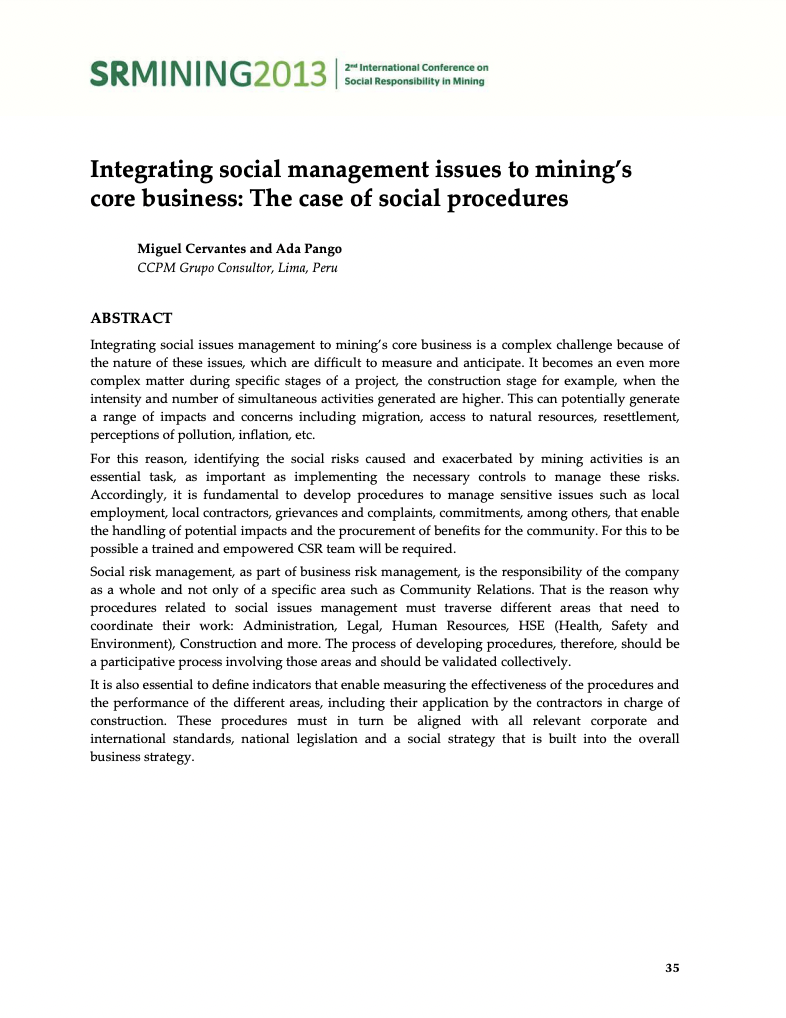
Integrating social issues management to mining´s core business is a complex challenge because of the nature of theses issues, which are difficult to measure and anticipate. It becomes a even more complex matter during specific stages of a project, the construction stage for example, when the intensity and number of simultaneous activities generated are higher. This can potentially generate a range of impacts and concerns including migration, access to natural resources, resettlement, perception of pollution, inflation, etc.
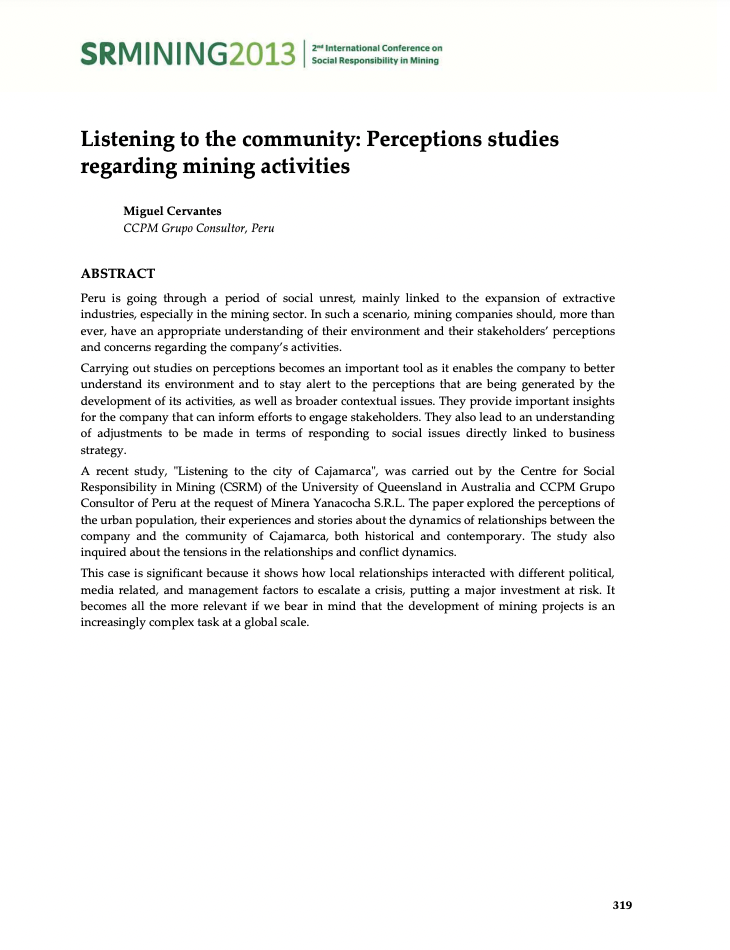
Peru is going through a period of social unrest mainly linked to the expansion of extractive industries, specially in the mining activities In such scenario, mining companies should, more than ever, have an appropriate understanding of their environment and their stakeholders´perceptions and concerns regarding the company´s activities.
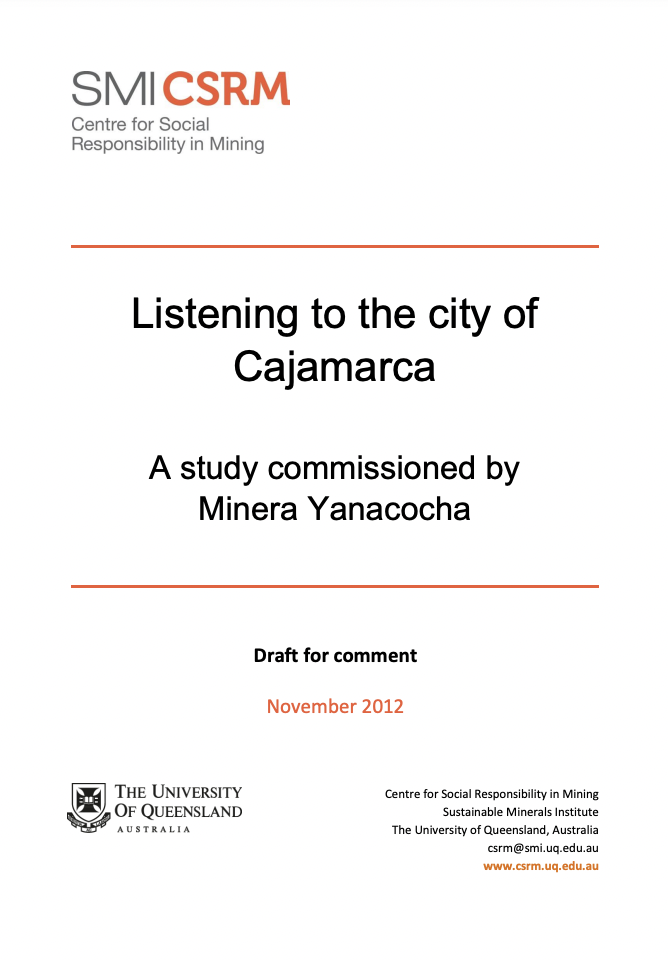
This report is the result of a ‘perceptions study’ based on interviews opinions, views and experiences. The report is neither a performance assessment nor an audit. In contrast to a perceptions study, audits and assessments focus on ‘testing’ company systems and procedures, and validating that plans are being implemented. This was not the approach taken in this study.
The researchers did not evaluate the status or effectiveness of community engagement and social development programs that Yanacocha has planned or that are currently underway. The research team were commissioned to listen to interviewees, focus on what people said, and capture their views in a concise report. When Yanacocha invited CSRM to undertake the study, there was some internal recognition that the company had not been listening well to the community, in particular to people from Cajamarca city. The release of this report is an initial step towards remedying that gap.

A common situation for mining companies in developing countries is the need to operate within communities affected by low competitiveness, high poverty and social exclusion, with weak institutional development characterized by corruption, political fragmentation and a lack of public regulation.
Most of the companies´attempts to overcome risks focus on the implementation of direct social investment strategies. Many of these initiatives show little evidence of positive impact and benefits, in most cases with limited coverage, and do not contribute to manage expectation.
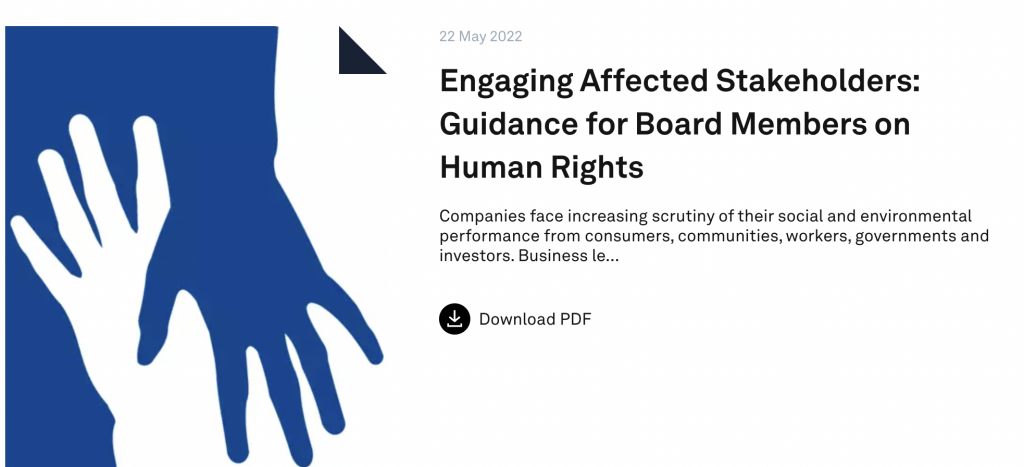
Engaging Affected Stakeholders: Guidance for Board Members on Human Rights
Companies face increasing scrutiny of their social and environmental performance from consumers, communities, workers, governments and investors. Business leaders are being urged to consider the needs of society at large and of all “affected stakeholders”, as well as their shareholders. This is becoming more apparent for corporate boards, which can play a key role in supporting human rights, especially at times of crisis. This timely guidance note for boards, produced
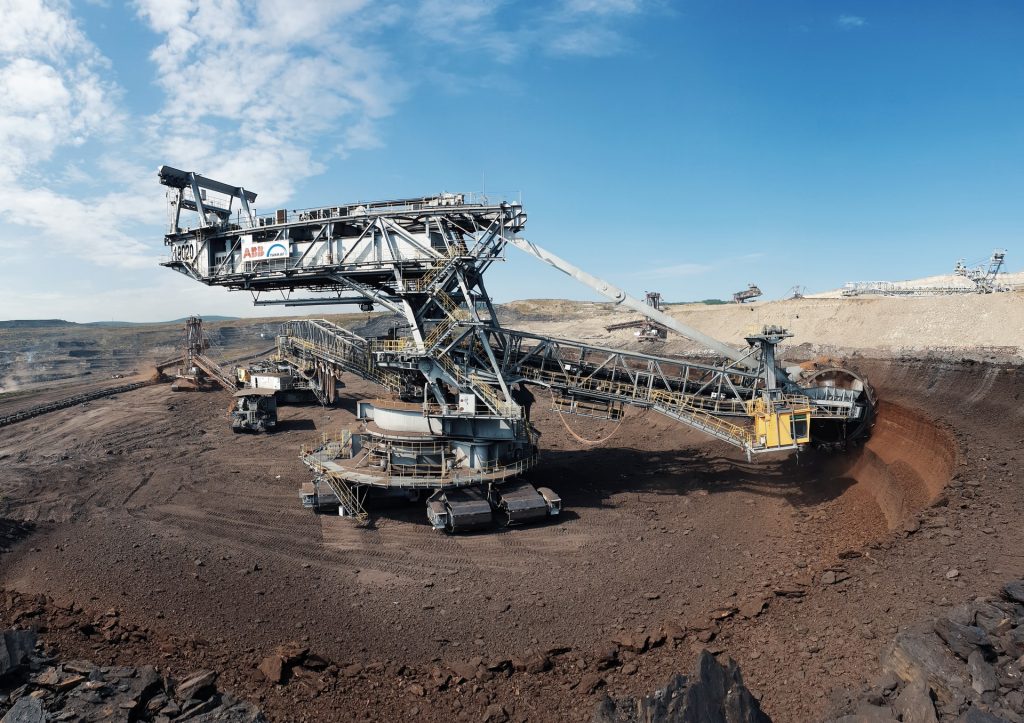
Top 10 business risks and opportunities for mining and metals in 2022
According to EY’s latest report on the mining sector, opportunities for mining and metals companies will continue to outweigh risks in 2022. In brief For the first time in our annual report on the sector, mining and metals companies rank environment and social issues as their number one risk. Decarbonization is a major disrupter, dominating discussions and presenting both risks and opportunities. License to operate has lost the top spot

